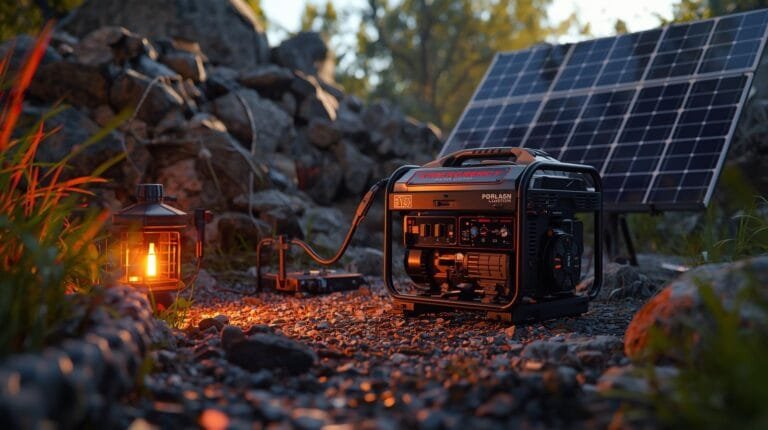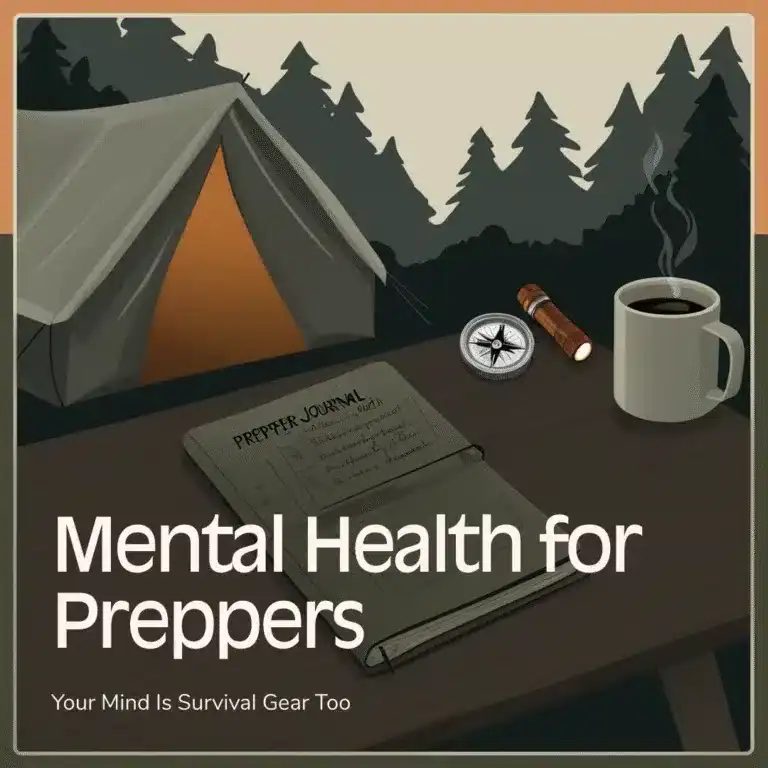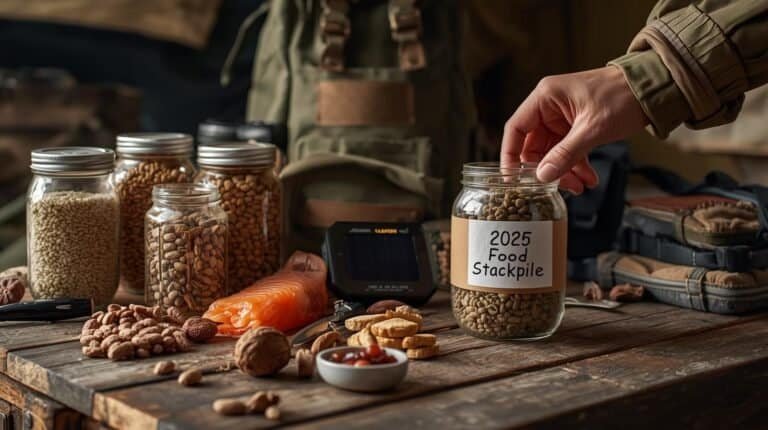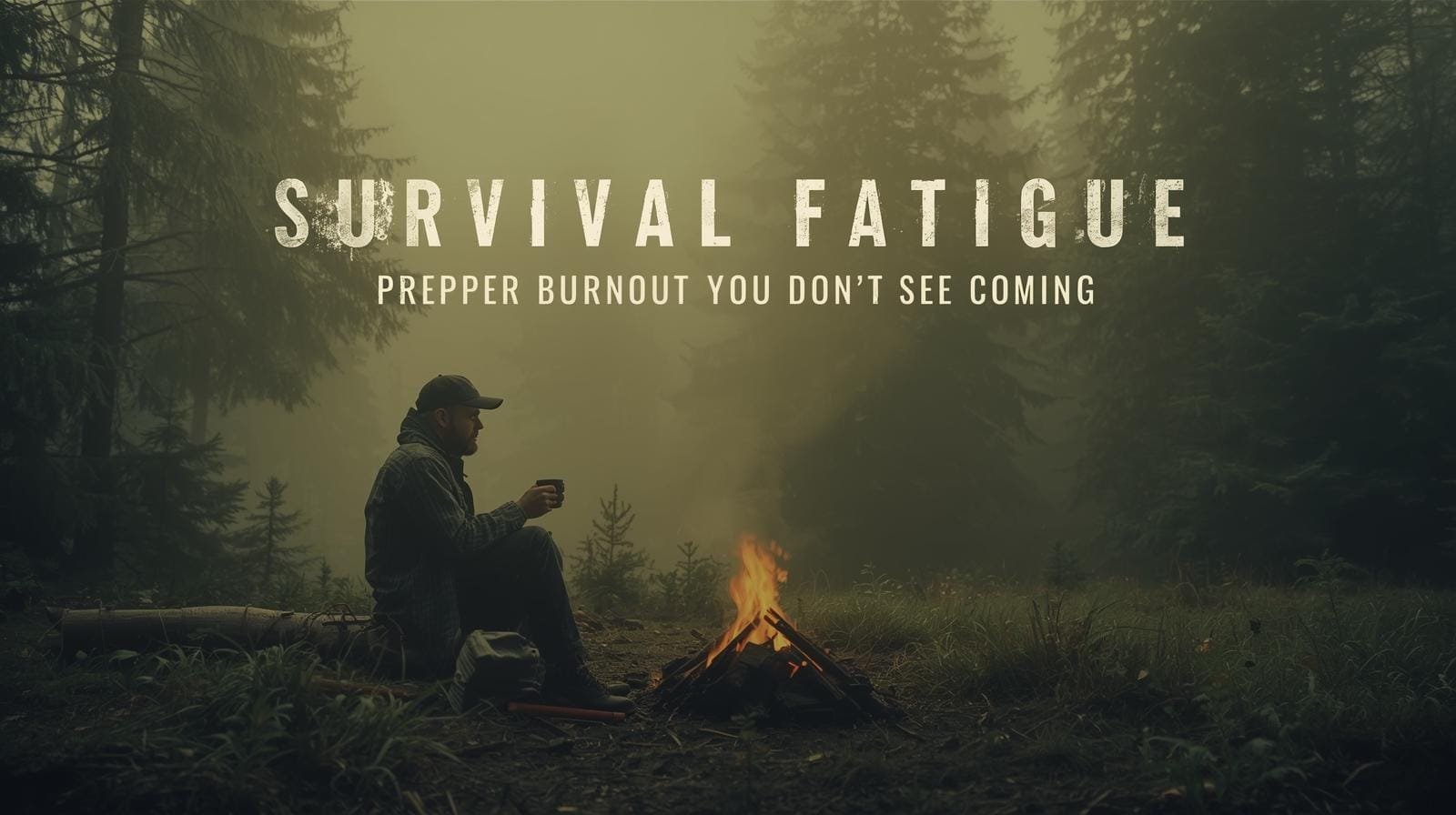
Survival Fatigue: The Prepper Burnout You Don’t See Coming
The Hidden Cost of Always Being “Ready”
Let’s be honest: prepping can mess with your head.
You start out collecting a few essentials—flashlight, first aid, a couple of extra cans of chili—and before long, you’re mentally running disaster drills in the grocery store. Every thunderstorm feels like a test. Every power flicker sets your heart rate like a fitness tracker on espresso. Every time my power goes out for an extended period of time. I always check my phone, to see if its still working.
Welcome to survival fatigue, the burnout you don’t see coming. It’s not dramatic. It’s slow, quiet, and disguised as “being responsible.” But behind the organization, the stockpiles, and the what-ifs, your brain is burning fuel faster than your bug-out rig.
This isn’t about panic or paranoia—it’s about learning to rest without letting your guard down. Understanding survival fatigue is the first step toward building true, sustainable resilience.
What Is Survival Fatigue?
Survival fatigue is mental and emotional exhaustion from constant readiness. Ask any combat vet they will tell you what real mental fatigue is about!
It’s that low-level tension you carry when your brain never truly relaxes because it’s always scanning for threats. You’ve taught yourself to prepare for every possible disaster—but not how to recover from that mindset. According to the American Psychological Association, chronic stress can have serious effects on both mental and physical health.
You might be suffering from survival fatigue if you:
- Feel anxious or irritable when not actively prepping
- Struggle to enjoy normal, non-emergency moments
- Feel guilt for resting or taking a day off
- Obsess over new threats (news cycles, shortages, politics)
- Think “If I stop preparing, something bad will happen”
Sound familiar? You’re not weak. You’re human. And even the toughest soldiers in the field get pulled from rotation to rest and reset. The National Institute of Mental Health recognizes that prolonged stress responses can lead to serious mental health challenges.
Why Preppers Are Especially Prone to Burnout
Here’s the irony: the better you are at prepping, the more you risk survival fatigue.
You’ve trained your mind to anticipate danger, think ahead, and take responsibility for everyone else’s safety. That’s noble—but it also traps you in perpetual “yellow alert.” Research from Harvard Health shows that staying in a heightened stress state affects everything from sleep to immune function.
When you stay in high readiness too long, your body runs on stress hormones. Adrenaline and cortisol help in a crisis—but over time, they chew through your sleep, energy, and emotional balance like rust on steel. Survival fatigue doesn’t just affect your mood—it impacts your decision-making ability when you need it most.
It’s not weakness to rest. It’s strategy. You can’t defend your family, build resilience, or think clearly when your mind is fried. The best preppers know when to stand down to stay sharp, understanding that survival fatigue can compromise the very preparedness they’ve worked so hard to build.
How to Reboot Your Resilience
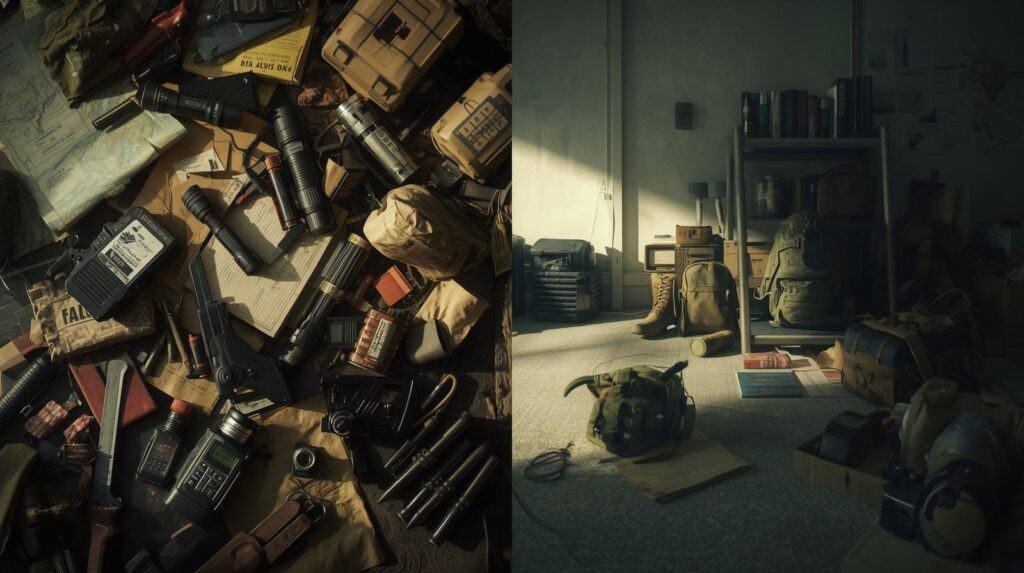
1. Run Mental Maintenance, Not Just Gear Maintenance
You already rotate food stock, test generators, and check ammo—why not check your mind?
Do a weekly “mental inventory” to combat survival fatigue:
- What’s been stressing me out lately?
- Am I reacting or responding?
- Do I feel tense even when things are fine?
Write it down. Awareness is your reset button. Psychology Today offers excellent resources on stress management and self-awareness techniques.
2. Disconnect to Reconnect
You don’t have to doomscroll every news headline to stay informed.
Try “digital fasting” to reduce survival fatigue: limit prep-related news and social media to 15 minutes per day. The goal is not ignorance—it’s emotional hygiene. Remember: every headline wants your cortisol. The Mayo Clinic recommends limiting news consumption as a key stress management strategy.
Instead, use that time for something grounding—walks, journaling, prayer, or a skill that restores you (not just another tactical rabbit hole).
3. Add Joy to the Gear List
Prepping is about living better, not just surviving longer.
Make a list of things that refill your mental tank—family dinners, working wood, fishing trips, campfires. Those aren’t distractions. They’re part of preparedness. Preventing survival fatigue means making room for the things that remind you why you’re preparing in the first place.
Because the person who can find peace in chaos doesn’t just survive—they lead.
4. Train to Relax (Yes, Really)
Stress training is survival training. Practice deliberate calm to counter survival fatigue:
- Box Breathing: Inhale 4 seconds, hold 4, exhale 4, hold 4. Repeat for 2 minutes. Cleveland Clinic explains how this technique activates your parasympathetic nervous system.
- Tactical Stillness: Spend 10 minutes each morning observing your surroundings without reacting.
- Faith Reset: Reflect, pray, or meditate daily. Stillness builds clarity.
5. Don’t Prep Alone
Isolation feeds anxiety and intensifies survival fatigue.
Connect with like-minded people who understand without judgment. You can talk gear and grace in the same conversation. True resilience isn’t built in bunkers—it’s built in community. Mental Health America emphasizes that social connections are crucial for mental wellness.
Field Notes: My Own Burnout Wake-Up Call
There was a point when I had six months of food, three power sources, and zero peace.
I was obsessing over perfecting my gear list while ignoring my mental one. Survival fatigue had taken over without me even realizing it.
Then one day, my generator didn’t start—and I lost it. Over a generator. That’s when I realized I wasn’t prepping anymore. I was performing stress. My survival fatigue had reached a breaking point.
So I started small: daily prayer, weekend hikes with no phone, breathing drills between tasks. The more I rested, the sharper I got. The mission didn’t change—but my mindset did. Managing survival fatigue became as important as managing my supplies.
Key Takeaways
- You can’t stockpile sanity. You have to maintain it.
- Being ready means being calm, not constantly anxious.
- Rest isn’t a luxury—it’s readiness maintenance.
- Faith, laughter, and community are as vital as ammo and beans.
- Survival fatigue is real, common, and manageable with the right approach.
- Recognizing the signs of survival fatigue early can prevent serious burnout.
The Centers for Disease Control and Prevention provides additional resources on coping with stress and building resilience.
Lead Magnet: The 7-Day Prepper Reset Checklist (Free PDF)
Download your quick-start mental reboot plan — includes daily drills, short reflections, and rest practices to get your mind mission-ready again. Learn to recognize and overcome survival fatigue before it compromises your preparedness.

